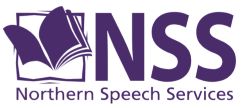Abstract
Speech-language pathology graduate programs do not reflect equity across racial and ethnic groups. Training programs must adopt an anti-racist stance and intentionally and strategically plan for equity and inclusion of students and professionals who are Black, Indigenous and Persons of Color (BIPOC). Retention of minoritized students must be supported by inclusion efforts. The authors review systems of support essential to the recruitment and retention of BIPOC students in graduate programs. Through funding support from a grant, the authors developed a model of training bilingual SLP students to work with dual language learners through an inclusive model of interprofessional education. Finally, the authors conclude with a discussion of questions faculty should consider to create institutional change. The authors are hopeful that this article provides SLP programs a best practice framework to build a diverse pipeline of speech-language pathologists better equipped to deliver effective culturally and linguistically responsive interventions for the clients served within our field and across our transdisciplinary work.
Recommended Citation
Pruitt-Lord, S.,
Escobedo, A.,
Paz, J.,
&
Robinson-Zañartu, C.
(2021).
Building a Pipeline of Bilingual SLPs to Serve Dual Language Learners: an Inclusive Model of Interprofessional Education.
Teaching and Learning in Communication Sciences & Disorders, 5(3).
DOI: https://doi.org/10.30707/TLCSD5.3.1649037688.673503





